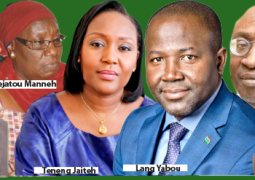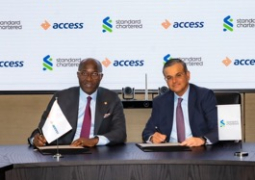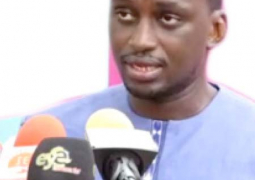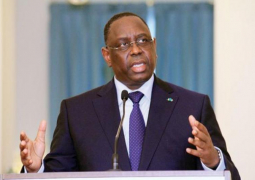
VP Joof continued that part of other challenges includes low commitment by the designated authorities to manage waste, and the lack of basic waste collection and disposal infrastructure.
The Vice President added that the increasing waste management challenge has resulted in poor hygienic conditions, pollution of our natural resources, as well as increasing human and animal diseases associated with poor waste management challenges.
According to him, the National Dialogue will provide the platform for exchange and experience sharing, and come up with a clear road map that will not only guide the councils on improving their waste management mandates, but also provide the foundation for developing a national road map for improving the institutional and regulatory framework for effective waste management systems.
The Vice President encouraged the lead ministries and agencies responsible for environmental policy coordination and implementation to initiate effective tools for monitoring and enforcement, as well as continue to raise awareness to local communities on simple techniques to reduce, re-use and recycle waste.
Moreover, he pointed out that waste management is a cross-cutting issue that impacts many aspects of our society and the economy. He said it also has strong linkages to a range of other global challenges such as health, food and resource security, sustainable consumption and production, climate change and poverty reduction.
He assured that any recommendations from the National Dialogue on strengthening capacity and streamlining the institutional and legal framework of waste management at national level would be highly considered.
Additionally, he tasked the National Environment Agency (NEA) to redouble its efforts in ensuring a clean and healthy environment for all, while calling on the councils directly responsible for waste management to provide the basic rights of waste management to communities.
Rohey John Manjang, the minister of Environment, Climate Change and Natural Resources (MECCNAR), described waste management as a great challenge to developing countries of which the Gambia is not an exception.
The environment minister added that the problem is not relenting but increasing proportionately with population growth, affluence, lifestyle and industrialisation.
She pointed out that the handing over of 10 tricycles to the Ministry of Health and 635 waste bins to all regional councils will not only facilitate, but would also improve waste management in their respective jurisdictions.
Read Other Articles In Headlines

Reshuffle in diplomatic mission as gov’t recalls ambassadors, head of missions
Jul 5, 2022, 10:48 AM




